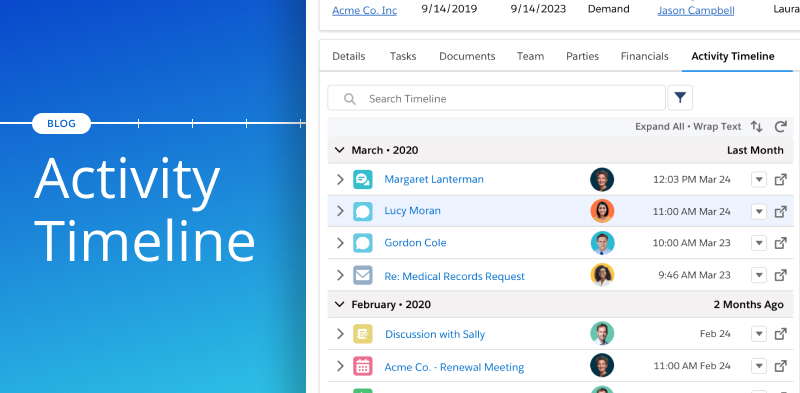How to Maintain Productivity During a Crisis
How to Maintain Productivity During a Crisis

The effects of the new coronavirus (COVID-19) are being felt across the United States. Bulk stores like Costco are seeing runs on items like bottled water and sporting events are being canceled to prevent large crowd gatherings. As the Centers for Disease Control and Prevention (CDC) expects the virus to continue to spread, everyday life continues to see further disruption. Businesses are postponing travel plans, conferences are being canceled, and employees are being encouraged to work from home — all in an effort to minimize transmission.
With more employers looking to protect their employees' health during this outbreak, is your law firm ready to make the transition from in-office to telecommuting? Firms operating on the cloud are able to move their employees back home, without the worry of losing productivity or client case progress.
A survey conducted by 8x8 at the end of February found that “44 percent of consumers with full-time jobs have already seen coronavirus impact the way they do business, 55 percent have canceled travel plans and are having fewer in-person meetings, and 40 percent are increasing their use of video conferencing.”
With employers like Twitter, Microsoft, and Amazon advising their employees to work from home, here at eight direct benefits to having your business living on the cloud.
1. File and Application Access
When operating on the cloud, all documents and program applications are accessible to users regardless of whether they’re in the office. If an employee needs to work remotely unexpectedly, they won’t panic because their laptop is at the office or they forgot to bring home a stack of manila folders. They can access everything they need to be productive from any device.
2. e-Signatures
New business shouldn’t stop if you’re away from the office mail or fax machine. If your firm relies on physical signatures, you’re going to struggle to have team members work from home.
Consider adopting a cloud-based e-signature service like DocuSign or AssureSign to send and receive contracts. Not only will this save your staff time, but it will also save your clients and business partners from having to print and mail agreements.
3. Internal Communication
Don’t overlook the importance of internal communication when adopting a remote work model. Productivity and efficiency can slow down when remote workers rely on phone calls and email to communicate.
Consider using video conferencing tools like Zoom or GoToMeeting so you maintain face-to-face interaction. Cloud-based chat tools, like Slack, allow you to instantly communicate with your team without clogging their inbox.
4. Constant Collaboration
When using a cloud-based platform, employees can communicate, create, and edit all in real-time with their colleagues. Your team has the ability to edit and comment on the same record, even if they’re in different time zones, and share and comment on internal updates using tools like Salesforce’s Chatter. Plus, having your entire workforce on one platform allows you to see what everyone is working on at-a-glance.
5. Progress Tracking
Ensuring that remote employees are remaining active and productive can be difficult when not working within a cloud-based platform. Instead, a cloud service like Litify allows for team activities and tasks to be easily tracked and monitored through in-depth reporting and analytic tools. Quickly see which employees are meeting deadlines, which cases are behind, and where you need to devote more attention.
6. Ability to Make Phone Calls
Rather than depend on employees using personal cell phones or landlines, cloud communication services, like RingCentral, enable individuals to make phone calls through their computers or a dedicated smartphone app. If using a platform like Litify, these phone services can be seamlessly integrated with your CRM.
It goes without saying, but having a robust CRM is imperative if your team is working remotely. You should be able to access all contact information in the cloud, so you don’t have to hunt through your email to find the phone number of a client or a business partner.
7. World-Class Security
With employees working remotely, it is natural to have some security concerns. But as more companies and law firms switch to cloud-based platforms, security measures are in fact increased. No matter where employees are working from, sensitive information is secured.
Salesforce, for example, uses best-in-class encryption and two-step authentication to ensure users are who they say they are. Never worry about devices being lost or stolen when operating on the cloud.
8. Better Client Experience
Clients expect exceptional service, regardless of where employees are operating from. Working from the cloud opens the door to new, innovative client features.
When using a platform like Litify, clients can communicate with their attorney via text message, email, phone call, or virtual meeting, and all conversations can be recorded and tracked for future reference. Additionally, secure portals give clients the ability to log in and track their case status and recent updates.
Questions? We're Here to Help
Switching to a remote law firm overnight can be stressful. Our team has tips and strategies that may help your transition. Please reach out if you want to know more.

.svg)





